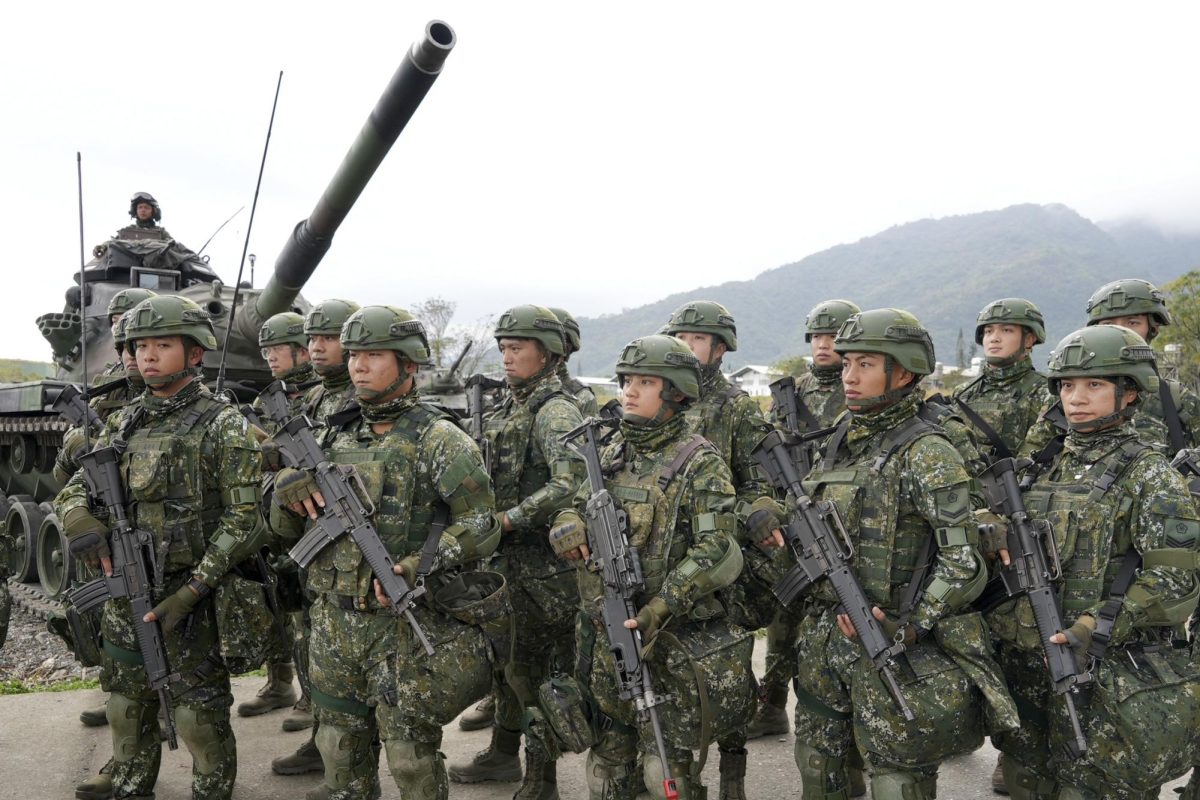The geopolitical environment of the 2020s has been defined by serious challenges to the hegemony of the United States. While the invasion of Ukraine was a surprise to some in the Western world, the unfortunate reality is that the invasion was a product of Russian aggression towards its neighbors. That aggression has been growing in scope and capacity since Vladimir Putin came to power in 1999. Putin, who is on record as saying the fall of the Soviet Union was the greatest geopolitical tragedy of the 20th century, has made it his goal to slowly subjugate and annex neighboring territories under the pretext of either protecting national security or “liberating” populations of ethnic Russians. In 2008, Russian forces invaded regions of Georgia in support of insurgent groups that sought to undermine the anti-Russian government. The result was a swift victory for Russian forces, who successfully annexed the regions of South Ossetia as well as Abkhazia and helped solidify their influence in the Caucasus. Similarly, in 2014, Russian troops helped carry out the annexation of Crimea, a region known for its usefulness for military operations in the Black Sea.
While these examples highlight Russian expansionism, it is just as important to consider the reaction of the international community and the United States specifically. In both cases, Russian actions were vehemently condemned, and some economic sanctions were issued, but the United States and the North Atlantic Treaty Organization (NATO) took no preemptive action to support Ukraine or Georgia militarily and declined to send NATO troops after Russian tanks rolled across their borders. This lackluster response to Russian aggression set a dangerous precedent that came to bear in 2022 when Ukraine experienced an all-out invasion. While the West has since sent supplies, they failed to prevent the conflict outright. The current atrocities and loss of life happening in Ukraine are, as I see it, the fault of Russia. However, the United States must consider how its failure to take a decisive foreign policy stance created the conditions for an invasion. Under the Obama administration, the overall response to Russian aggression in Crimea and Syria was aggressive in rhetoric only. Even though some economic sanctions were issued, no real opposition was posed to Russia on the ground. Under Trump, the situation was even bleaker, as the former president routinely flirted with the idea of reducing U.S. support for NATO and pulling out of international alliances. The consequences of this waffling have borne out in the trenches of Eastern Europe.
Turning our attention to the Far East, the island nation of Taiwan could be seen as the next Ukraine if the United States does not make real changes to its deterrence strategy. While by no means the same situation, the similarities between Ukraine and Taiwan are considerable when taking into account history, geographic positioning and military significance. Since the end of the Chinese Civil War, Taiwan has been a functionally independent country with a democratic government and close ties to the United States. They are a thorn in the side of China, whose end goal is reunification with Taiwan under the Chinese Communist Party. The nation was once called “an unsinkable aircraft carrier” by five-star general Douglas MacArthur, and its location near the South China Sea and off the coast of mainland China makes it ideal for conducting military operations in the far Pacific. Because Taiwan has lived in constant fear of Chinese invasion since its inception, it identifies as part of China to ease relations with the mainland. The question of whether or not to declare independence and thereby strengthen ties with the United States is an ongoing question in Taiwanese politics.
Recently, the “one state, two governments” agreement that has been in place for the past thirty years has been challenged by Chinese military exercises in and around Taiwanese airspace. These military exercises, coupled with the increasing militarization of the South China Sea, have set off alarm bells in the international community that China is heading down the same road as Russia. Aside from its status as one of the world’s most developed democracies, Taiwan is of concern to the U.S. for its economic and strategic benefits. As previously mentioned, Taiwan is extremely important militarily, and some believe that should it come under Chinese control, it could be used to cut off U.S. trade with Japan and South Korea. Taiwan is also a leading producer of semiconductors, an essential component of electronics manufacturing, and as of now, the United States is dependent on Taiwanese supply. For both of these reasons, a Chinese Taiwan would be a disaster for American security and business interests.
Suppose the U.S. hopes to prevent a Chinese invasion of Taiwan and the bloodshed that would follow. In that case, it must reconsider its current policy of strategic ambiguity, which argues that the U.S. should remain noncommittal about whether to defend Taiwan in the event of a Chinese invasion. The methodology is that the potential for an overwhelming U.S. military response coupled with neither China nor Taiwan being irrationally committed to war contributes to what scholars call “pivotal deterrence.” The United States can maintain peace without taking a hard stance on the issue of Taiwanese sovereignty. In recent years, however, the principles that underpin pivotal deterrence have crumbled. After decades of expanding its naval and technical capabilities, the People’s Liberation Army can now present a significant challenge to the U.S. military, should they come into direct conflict. As China’s military strength has grown, so too has its appetite for conflict, and its exercises in the region and aggressive posturing indicate that they are committed to an eventual invasion. It is at this point that the lessons of Ukraine ought to loom large in the minds of American policymakers, as a position similar to strategic ambiguity that was used in Ukraine and the Caucuses led to disastrous effects.
The newfound strength of the Chinese military, the commitment of the CCP to conflict and the invasion of Ukraine all spell the end of strategic ambiguity. While admittedly effective for the past 60 years, if the policy is kept in place, the United States will once again find itself behind the eight-ball in international politics. This leaves us with the issue of what stance the United States should take moving forward. Options range from recognizing Taiwan as a sovereign nation to the more radical path of stationing American troops on the island in an agreement similar to what the U.S. currently has with Japan. The moment calls for a pragmatic policy that can ensure Taiwan’s sovereignty without pushing China to the brink of war. The most appealing solution appears to be the creation of a NATO-style agreement between the United States and Taiwan, which would ensure U.S. support of the island nation should it come under attack. This would help further solidify Taiwanese and U.S. relations, while signaling to China that aggressive behavior will be met with appropriate retaliation. While steps could be taken toward Taiwanese independence in the future, such a decision is brazen considering the international climate now.















